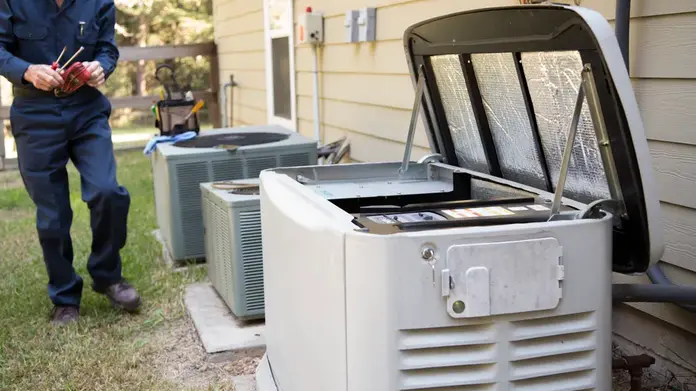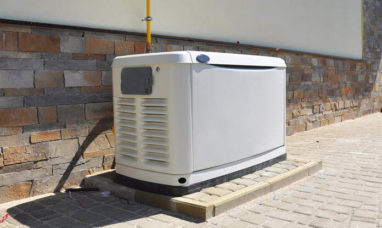The best approach to ensure that your residence or place of business will be secure during a power loss is to have a backup generator. However, it can be difficult to pick the ideal backup generator. Determine the size of the generator you should buy depending on your needs during a power loss as the first stage in this inquiry.
Choose a Home Backup of the Correct Size
The maximum amount of watts that a backup generator can produce safely determines its size. Use your phone’s calculator feature to tally up all the crucial circuits that you intend to back up in order to calculate the appropriate size for your purposes. Asking yourself whether you’ll only run a few crucial appliances or whether you’ll back up your full house is a straightforward alternative to this problem.
Let’s now examine more closely the best size to purchase for a backup generator.
Only Back Up Important Circuits
It will be less expensive for you to buy a smaller home backup generator if you decide to back up only a few crucial circuits. For example, your refrigerator or another small device would be examples Find the wattages of the appliances you wish to backup in order to calculate the size of the generator.
Examples include:
-
- 5000 Watt AC Unit
- a 40-gallon electric water heater with 5000 watts.
- 425 watts for the refrigerator
- A 125-watt computer and monitor
You will need a home backup generator that can produce 10550 watts in total, which is the sum of these individual amounts.
Make a Complete House Backup
Invest in a standby generator if you intend to back up your entire house. The exterior of the air conditioner will seem similar to a standby generator that has been installed. Furthermore, it will increase the value of your house and make a great selling point if you ever decide to sell.
Simply add the total wattages from all the circuits in your home’s electrical panel to get the standby generator size that will work best for you.
You’ll know whether a portable or standby generator is required once you’ve decided whether to power only the most crucial circuits or the entire house. In order to better understand your options as a homeowner, let’s now consider the advantages and disadvantages of each type of backup generator.
Portable Backup Generators: Advantages and Disadvantages
The standby generators are generally more powerful than the portable backup generators. As their name suggests, portables are mobile, and to make them a little bit more mobile, they are typically mounted on wheels.
The benefits and drawbacks of a portable backup generator will now be discussed.
Upsides of a Portable Backup Generator
-
- Portables are affordable.
- Portables can run 1-2 appliances.
- A professional installation is not necessary for portables.
Downsides of a Portable Backup Generator
-
- Fuel Type—Gasoline powers the majority of portable generators. During extended power outages, one requires a large supply of fuel on hand whose usage and storage are subject to specific regulations.
- The tiny fuel tank in portable generators significantly reduces their running time. Ensure there is enough fuel in your portable device if you want to use one, to run it through the entire power outage.
- Each item needing power requires an extension cord. Since you must position the generator far from your home due to the fuel and exhaust pollutants, this calls for the usage of many extension cords.
- More power can be produced by a backup generator than by a portable one. Because of this, running a heat pump or central air conditioner will be next to impossible.
Standby Generators: Good and Bad
Since they seem like AC units when installed, a standby generator can actually be rather attractive. If going without power for any amount of time simply isn’t an option, you’ll need to use a standby.
A Standby Backup Generator Has the Following Advantages and Disadvantages
Benefits of a Standby Generator
-
-
- Your standby will allow for a seamless switch between power sources thanks to automatic operation from the moment power is stopped until it is restored.
- Since your standby is directly connected to your electrical service panel and powers the entire house, no extension wires are required.
- Standby generators run mostly on natural or propane gas, so no fuel needs to be kept on hand or fuel tanks replenished.
- Your home will gain in value if you install a backup generator.
-
Cons of a backup generator
-
-
- A standby generator might cost anything from $6000 to $25,000 to have professionally installed. How much the installation will cost depends on the size of the generator, the materials used for the installation, and whether natural gas or propane gas is used for the installation.
- Standby generators must be set up by a professional because they need to be wired directly to your home’s electrical service panel and given the fuel connection they need.
-
Featured Image: Cnet © LifestyleVisuals/Getty Images







